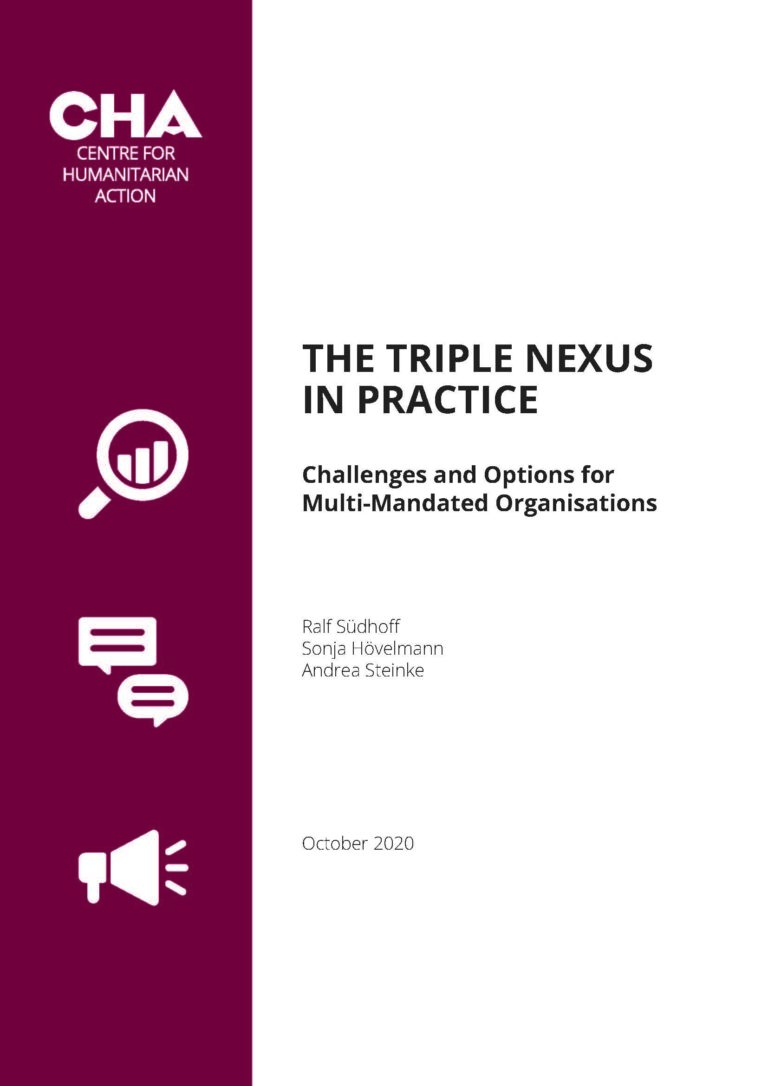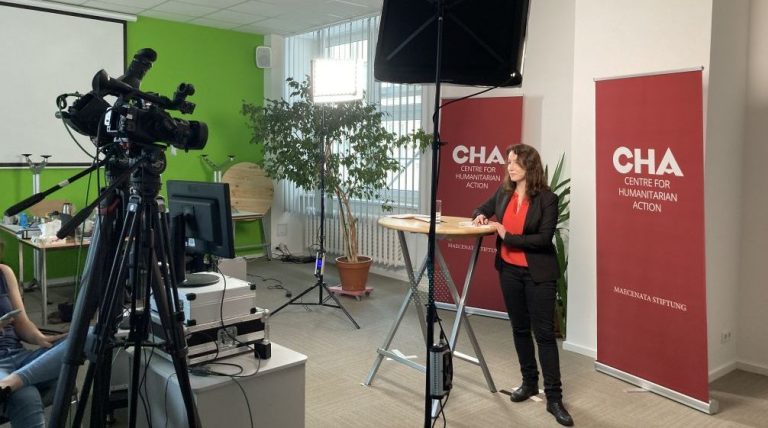| Date: | 17.06.2021 |
| Time: | 15:00 - 16:30 |
| Location: | online |
Video recording of the event further below
On 17 June 2021, the International Committee of the Red Cross (ICRC) and the Centre for Humanitarian Action (CHA) have hosted the online event:
TOWARDS A NEXUS THAT WORKS? JOINING FORCES IN PROTRACTED CONFLICTS
Panelists and participants (via the Zoom chat) have discussed the joint report of the ICRC, UNICEF and the World Bank on humanitarian and development support for local water and sanitation providers in protracted crisis. The event has critically assessed the report’s call for the strengthening of the humanitarian- development nexus in protracted conflict, its necessity, its dilemmas, its challenges as well as its opportunities.
Once you have started the playback of the embedded video, you can jump directly to the different chapters of the recording:
00:00 Welcome and Introduction by Andrea Steinke, Research Fellow, CHA
04:30 Presentation by Dominick Revell de Waal, Senior Economist, World Bank
17:40 Video footage from Syrian Arab Red Crescent (SARC) Water & Rehabilitation Department (engineer Khaled Shalak speaking)
25:45 Panel discussion with the following 4 panelists:
- Rodrigo Mena, Assistant Professor of Humanitarian Aid and Disaster Governance, Erasmus University Rotterdam
- Mohammad Said Al Hmaidi, CEO, Water Sector Regulatory Council, Palestine
- Michael Talhami, Senior Policy Advisor, ICRC
- Dominick Revell de Waal, Senior Economist, World Bank
66:12 Questions from the audience, facilitated by Sonja Hövelmann, Research Fellow, CHA
Abstract of the event:
The protracted nature of crisis in countries characterized by fragility, conflict, and violence transcends conventional notions of (pre-, during, and post-) crisis management and poses challenges to local service providers and international aid and development providers alike. There is often no obvious path of return from protracted crisis for service providers, as the new report concentrating on water supply and sanitation services in urban contexts in the Middle East and North Africa, jointly published by the World Bank, UNICEF and the ICRC, highlights. The report covers protracted urban crises, including armed conflict and refugees residing in host communities, holding relevance beyond the Middle East and North Africa region and WASH sector.






